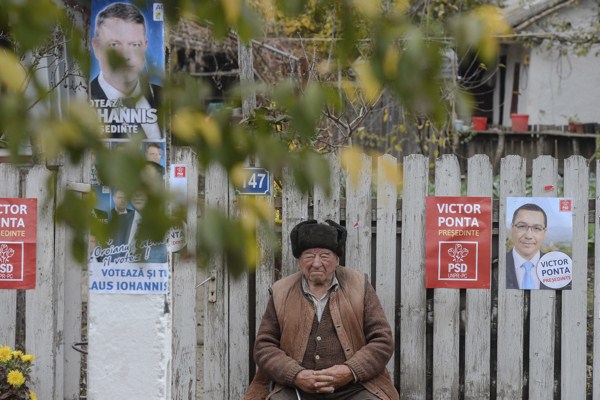Romanians vote Sunday for a new president after a tumultuous 10 years under incumbent Traian Basescu, who oversaw both European Union accession and an economic boom followed by a crisis, and has survived two attempts at impeachment. Prime Minister Victor Ponta, who heads the ex-Communist Social Democratic Party (PSD), is widely expected to win the vote, but he has faced a closer race than anticipated against liberal rival Klaus Iohannis.
Ponta has been a controversial premier, criticized by both the EU and the U.S. for measures seen as undermining independent institutions after he came to power via a parliamentary coup in April 2012. His attempt to impeach Basescu the following July with a referendum—the second of the PSD’s efforts to do so—also led to international opprobrium. Critics fear that a Ponta victory could lead to greater impunity for a discredited political elite or even a shift toward greater authoritarianism, a pattern some see emerging in the region, following the lead of Hungarian Prime Minister Viktor Orban. In any case, Romania, a country of great economic promise and substantial importance to Europe, faces a period of political uncertainty.
In the first-round voting on Nov. 2, Ponta took 40 percent of the vote to Iohannis’ 30 percent, putting him in the driver’s seat for this Sunday’s run-off. Although Iohannis is expected to pick up most of the almost 10 percent of the vote that went to two other significant candidates, Ponta, as head of government and leader of Romania’s most formidable national political machine, remains the strong favorite.

